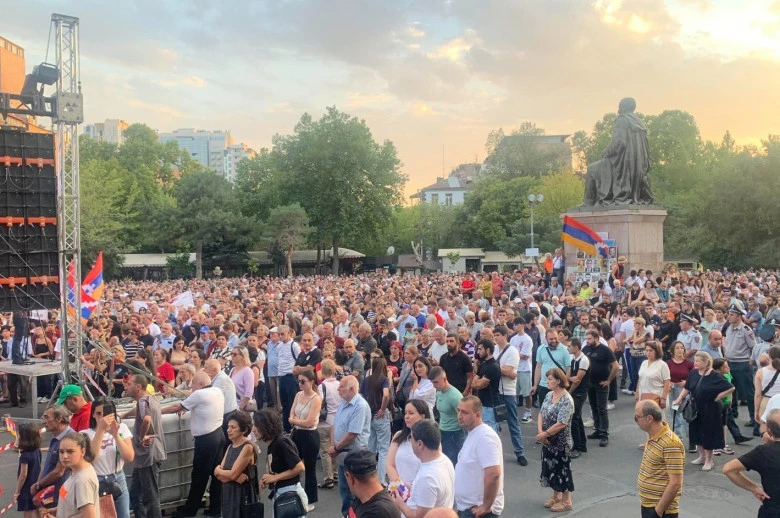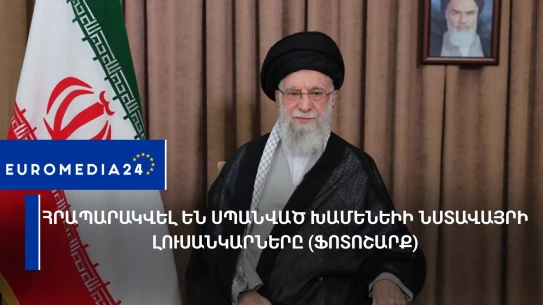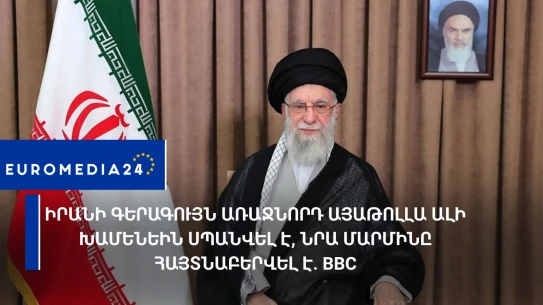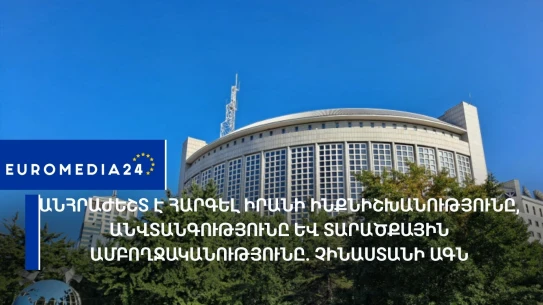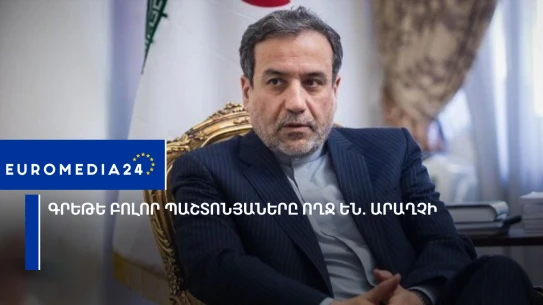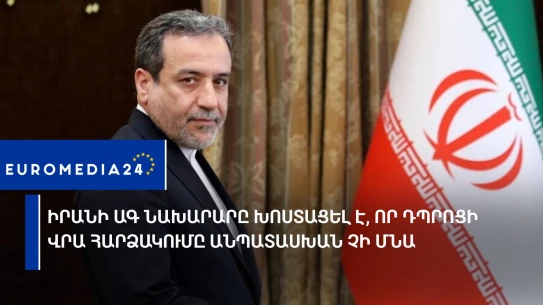"Fact" daily writes:
Discussions about part 2 of Article 236 of the Criminal Code do not stop.
It establishes criminal liability for taking material advantage in order to participate in an assembly or to refuse to participate in an assembly.
What does international legal practice say about material interest? in 2024 on June 26, the Parliamentary Assembly of the Council of Europe (PACE) unanimously adopted the report prepared by its monitoring committee on the fulfillment of the obligations undertaken by the Republic of Armenia.
The report noted that according to the European guidelines on the freedom of peaceful assembly, material encouragement to participate in assembly cannot be criminalized, and the application of criminal punishment in this case is illegitimate.
They emphasized the name of public figure Avetik Chalabyan, expressed concern that the current authorities of Armenia used Article 236 of the Criminal Code to punish him politically.
According to lawyers, this article of the Criminal Code contradicts not only international conventions, but is itself unconstitutional. Being materially interested is not a crime, there is no clear wording in the Criminal Code regarding the term "materially interested". Participating in a rally is not a crime, freedom of assembly is guaranteed by the Constitution of Armenia. Therefore, it is unclear why it is a crime to be financially interested in participating in a rally.
By the way, this article was added to the Criminal Code in 2021 with the "light hand" of Daniel Ioannisyan, the program coordinator of the "Union of Informed Citizens", but this provision should not have been included in the Criminal Code to be adopted in 2022. But a few days before the adoption of the Code, the issue of discussing the addition of Article 236 was included in the agenda of the National Assembly, it was adopted in an accelerated manner, and the president of our country signed it. Now let's talk about the unconstitutionality of the mentioned part of the article. After the PACE report, which we have already mentioned, the MPs of the National Assembly "Armenia" faction decided to apply to the Constitutional Court, demanding to consider the compliance of Article 236.2 of the Criminal Code with the Constitution. does it not contradict Article 44 of the Constitution in terms of establishing responsibility for materially interested in participating in the assembly or refusing to participate in the assembly, is it a necessary, appropriate and proportionate restriction on the exercise of the right to freedom of assembly?
The MPs also raised the issue of legal certainty of Article 236, Part 2, as well as whether it is consistent with the practice of bodies acting on the basis of international human rights treaties ratified by Armenia. In the presented justifications, it is stated that the norms related to determining responsibility for taking material interest in order to participate in the gathering or refusing to participate in the gathering defined by Article 236, Part 2 of the Criminal Code appear to contradict the Articles 1, 4 and 5 of Article 44 of the Constitution. : They relate to freedom of assembly. Next, it was emphasized that the referenced provision of the Criminal Code contradicts Articles 78 and 79 of the Constitution, which refer to the principles of proportionality and certainty. The issue of the certainty of the term "materially interested" was raised. In addition, in the application submitted to the CC, the deputies argued that the same provision apparently contradicts Article 81 of the Constitution, that is, "When interpreting the provisions of the Constitution on fundamental rights and freedoms, the international treaties on human rights ratified by the Republic of Armenia shall be taken into account. the practice of the existing bodies", in addition, "Restrictions of fundamental rights and freedoms cannot exceed the restrictions set by international agreements of the Republic of Armenia". The MPs emphasized that there are no similar legal norms in the legislative acts dedicated to the regulation of criminal as well as peaceful gatherings of all other countries that are members of the European Council. The Constitutional Court was supposed to make a decision on this issue on October 15. But the Supreme Court decides to go the other way. On October 11, suspends further discussion of the issue and turns to the Venice Commission, asking it to provide an advisory opinion, specifically, is the wording of Article 236, part 2 of the Criminal Code, "materially interested in the purpose of participating in or refusing to participate in an assembly" compatible? to the European standards of the principle of legal certainty. Taking into account the positions expressed in the PACE report, the provisions contradicting European conventions, isn't there a high probability that the same opinion will be voiced: this is an action that does not contain a crime, we are against the criminalization of this. When talking about Article 236.2 of the Criminal Code, we cannot fail to mention the name of Avetik Chalabyan. His case shows all the pitfalls of this disputed provision of the said article. On May 14, 2022, Chalabyan was detained. Then the long chain of court hearings began, the conclusion of which seems to be approaching. "Past" recently had the opportunity to address the topic. The Court of Appeal overturned the decision of the first instance court, and Chalabyan's defense team is taking clear steps to prove his innocence in court. If Avetik Chalabyan participates in court hearings in freedom today, Gerasim Vardanyan, a member of the General Assembly of Dashnaktsutyun, is not as "lucky" as he is under the same charge and has been in prison for four months. It turns out that in 2018, in Armenia, which was declared a "bastion of democracy", people are held accountable under an article that does not contain a crime? Many people are convinced that justice will definitely be restored, there can be no second opinion, but it is unfortunate that the Constitutional Court, being the highest body of justice in Armenia, did not find the strength to recognize part 2 of Article 236 of the Criminal Code as unconstitutional and seems to have transferred the responsibility to its department. To the Venice Commission. Details in today's issue of "Past" daily
















